
Hudson Valley Spring 2023 Program Catalog alz.org/hudsonvalley • 800.272.3900 This catalog is supported in part by a grant from the New York State Department of Health.
Hello, I’m David Sobel, Executive Director of the Alzheimer’s Association Hudson Valley Chapter. I’m happy to welcome you to the our chapter’s programs and services catalog. We want you to know that we are here in the community to support families living with Alzheimer’s and dementia in a variety of ways, and this catalog will offer an overview of how we can help you, your loved ones and others you know who are affected. From care consultations with licensed professionals, to support groups and educational programs for the general public, we are here for you. If you are among the families touched by dementia, your loved ones may also benefit from our social programs, which help lessen the isolation that can result when someone is living with dementia. And if you aren’t living with dementia, but would like to learn more about our organization and its mission, we are here for you as well. There are many ways to get involved and help us raise awareness and funds to support our programs, advocacy and research.
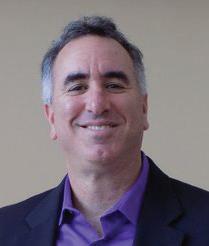
Hello, I’m Meg Boyce, Vice President of Programs and Services for the Alzheimer’s Association Hudson Valley Chapter. Thank you for your interest in learning more about us. We are an information, referral and support organization supporting Dutchess, Orange, Putnam, Rockland, Sullivan, Ulster and Westchester counties. All our programs and services — with the exception of our biannual Meeting of the Minds Dementia Conference — are free to families in need of support and guidance dealing with any form of dementia; it doesn’t have to be Alzheimer’s disease for us to help. We are here to support families through all stages of their dementia journey, from even before a diagnosis through the final decisions that have to be made. We hope this catalog will help you become familiar with what we do, so that if you find yourself needing support or have concerns that a loved one may be developing dementia, you will know where to turn. We are always just a call or click away. Our 24/7 Helpline is available any time, day or night, at 800.272.3900. Information and helpful classes for caregivers are also available on our website at alz.org/care.
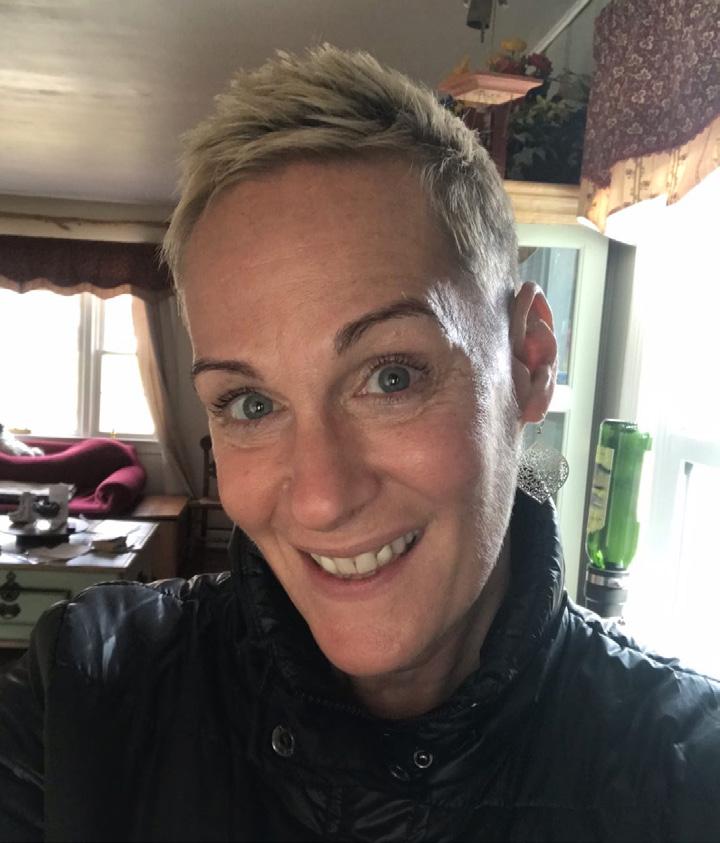
Introduction
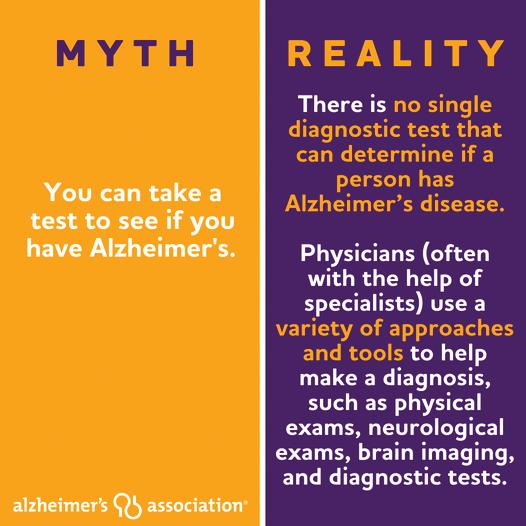
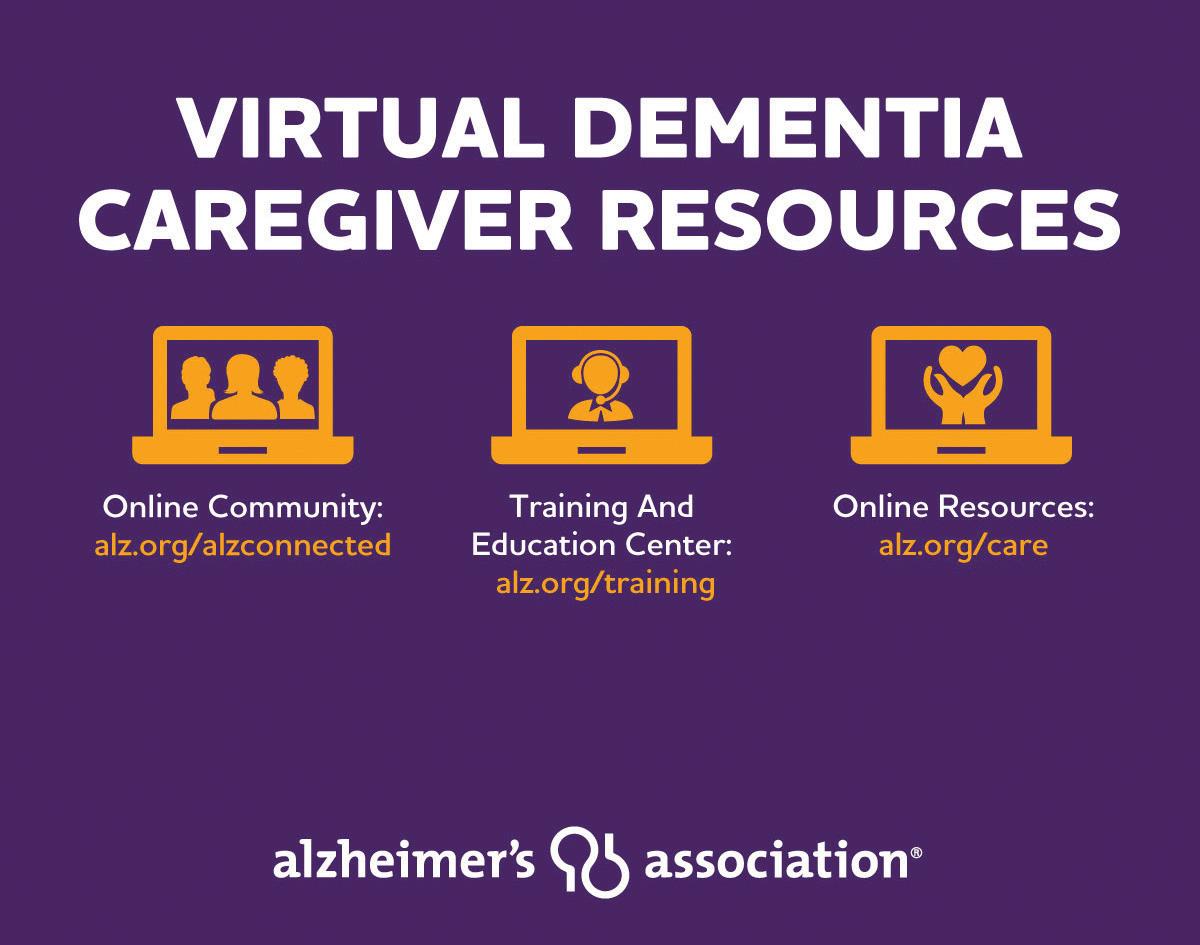
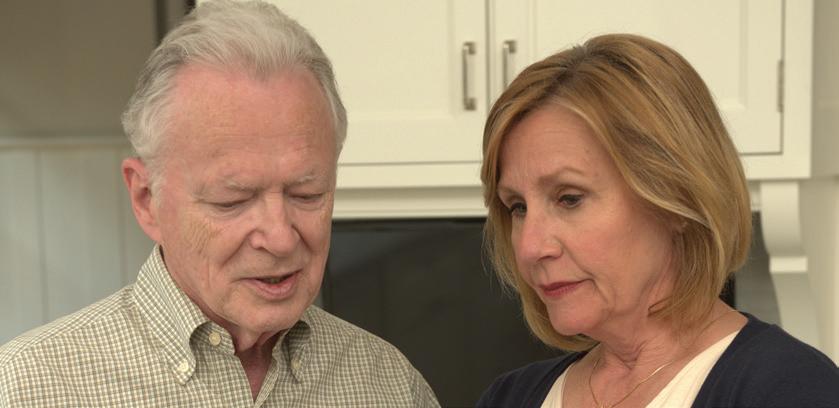
Sign up for our free e-newsletter Stay up-to-date on the latest news and advances in Alzheimer’s treatments, care and research. Get tips for living with Alzheimer’s as well as simple ideas on how you can support the fight to end Alzheimer’s. We do not share email addresses with third parties. Visit our website at alz.org and click on the link for e-news. 10 Warning Signs of Alzheimer’s 1 Memory loss that disrupts daily life 2 Challenges in planning or solving problems 3 Difficulty completing familiar tasks. 4 Confusion wtih time or space 5 Trouble understanding visual images and spatial relationships 6 New problems with words in speaking or writing 7 Misplacing things and losing the ability to retrace steps 8 Decreased or poor judgment 10 Changes in mood and personality 9 Withdrawal from work or social activities
Helpful information
CARE CONSULTATIONS
High-quality dementia care requires planning Our experts can help you get started
Caring for a person with dementia is a life-encompassing experience. Many people may be involved: The person with dementia, family members and friends in the care team. It requires thought, strategy and — most importantly — a plan.

During a care consultation, Alzheimer’s Association staff can help you:

• Navigate difficult caregiving decisions and family issues
• Assess current needs and anticipate future care challenges
• Develop an effective care plan and problem-solve barriers
• Offer supportive listening in a confidential, nonjudgmental environment
Support groups are a safe place to share with others
• Alzheimer’s Association support groups, conducted by trained facilitators, are a safe place for people living with dementia and their caregivers to:
• Develop a support system.
• Exchange practical information on challenges and possible solutions.
• Talk through issues and ways of coping.
• Share feelings, needs and concerns.
• Learn about community resources.
Call us at 800.272.3900 to learn about available groups and how to participate.
Hudson Valley
Caregiver Support Groups
Dutchess
Hyde Park
6:30-8 p.m. (starting May 10)
Every second Wednesday Hyde Park United Methodist Church 1 Church St., Room 105
Poughkeepsie
10:30-11:30 a.m.
Every first Wednesday of the month via Zoom
Orange
Middletown
2:30-3:45 p.m.
Every third Wednesday of the month in person at Temple Sinai, 75 Highland Ave. 3:30 p.m.
Every fourth Tuesday of the month on Zoom
Rockland
Nanuet
4-5 p.m.
Every first and third Monday of the month via Zoom
Residential Care Facility group
For those caring for someone with dementia in a residential care facility
10-11:30 a.m.
Every first and third Thursday of the month via Zoom
Prescreening is required; call 800.272.3900.
Young Adult Caregiver Support Group
N.Y. caregivers 18-40 are invited to join this group via Zoom at 7:30 p.m. the second Monday of the month.
Ulster
Saugerties
11 a.m. to 12:30 p.m. Every first Saturday of the month via Zoom
Kingston
11 a.m. to noon every third Wednesday of the month March 15 through August 16 Hybrid group available both online and in person at Resource Center for Accessible Living 727 Ulster Ave.,
Westchester
Hawthorne
For Hudson Valley spouses only
10-11:15 a.m.
Every second and fourth Thursday of the month via Zoom Prescreening is required a few days ahead to participate.
Mount Kisco
For adult children only
(in Dutchess, Putnam, Rockland and Westchester only)
6:30-8 p.m.
Every fourth Wednesday of the month via Zoom. Pre-screening is required a few days ahead to participate.
New Rochelle
7-8 p.m.
Every third Wednesday of the month via Zoom
Peekskill
7:30-9 p.m.
Every first and Third Thursday of the month in person at the Emerald Peek, 2000 E. Main St
Westchester
Late-Stage Caregiver Support Group
Limited seven-session group via Zoom
10:30-11:45 a.m. Mondays
March 13, 20
April l0 & 24 • May 8 & 22 • June 5
Topics include ambiguous loss, anticipatory grief, important conversations, caregiver self-care and what matters most
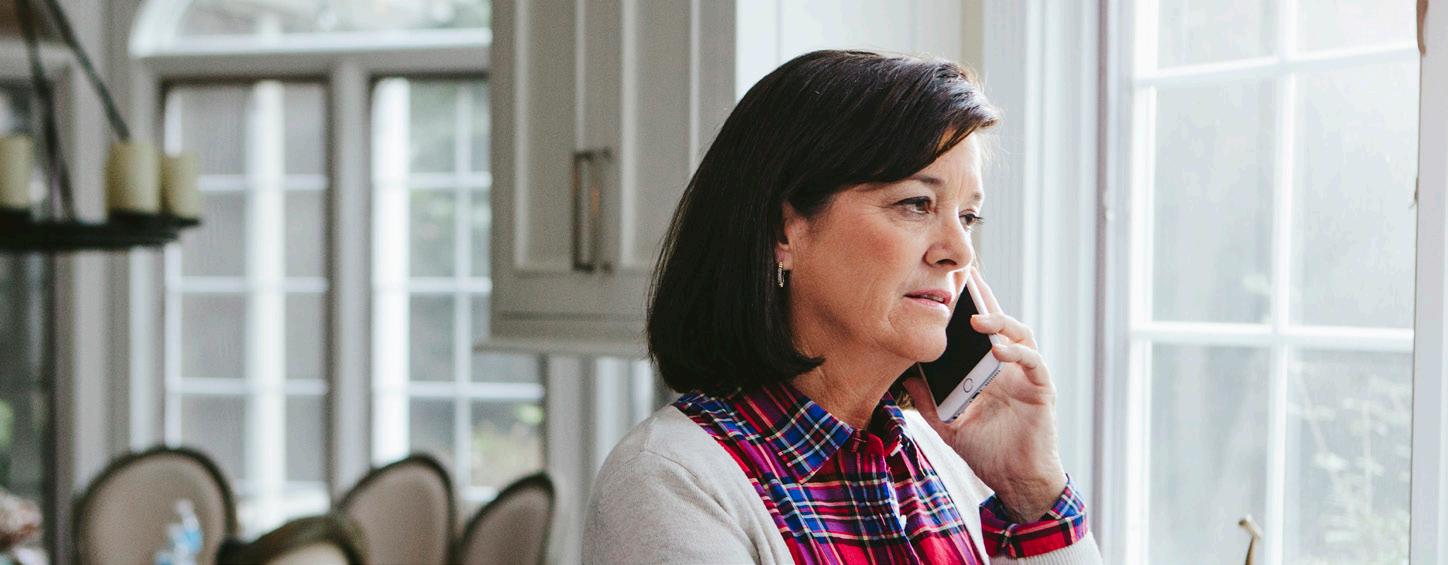
Sleepy Hollow
For spouses only
(Dutchess, Putnam, Rockland and Westchester only)
10-11:30 a.m.
Every second and fourth Friday of the month via Zoom
Pre-screening is required a few days ahead to participate
White Plains
10-11:30 a.m.
Every second Monday of the month in-person at Calvary Baptist Church
188 Orawaupum St./32 West Post Road
10-11:30 a.m.
Every fourth Monday of the month via Zoom.
10:30 a.m. to noon
Every second Wednesday of the month via Zoom.
10:30 a.m. to noon
Every fourth Wednesday of the month in-person at Calvary Baptist Church
188 Orawaupum St./32 West Post Road
in part by a grant from the New York State Department of Health.
These groups are supported
for more information at 800.272.3900.
Call the Alzheimer’s Association
2023 ALZHEIMER’S DISEASE FACTS AND FIGURES
More than 6 million Americans are living with Alzheimer’s
1 in 3
seniors dies with Alzheimer’s or another dementia
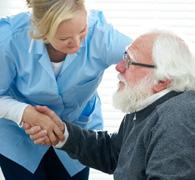
Between 2000 and 2019, deaths from heart disease has decreased 7.3% while deaths from Alzheimer’s disease have increased 145%

Over 11 million Americans provide unpaid care for people with Alzheimer’s or other dementias
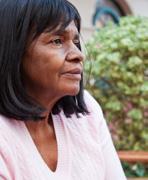

It kills more than breast cancer
prostate cancer
combined
In 2023, Alzheimer’s and other dementias will cost the nation
The lifetime risk for Alzheimer’s at age 45 is
1 in 5
These caregivers provided more than 18 billion hours valued at nearly $340 billion

for women for men 1 in 10
By 2050, these costs could rise to nearly
$345 billion $1 trillion
While only 4 in 10 Americans talk to their doctor right away when experiencing early memory or cognitive loss,

7 in 10 would want to know early if they have Alzheimer’s disease if it could allow for earlier treatment.

For more information, visit alz.org/facts © 2023 Alzheimer’s Association® | All Rights Reserved Alzheimer’s Association is a not-for-profit 501(c)(3) organization
FACT SHEET
Living Alone with Alzheimer’s Disease
Alzheimer’s imposes profound challenges for those living with the disease. Yet many of them live alone.
• Among all Americans with Alzheimer’s, about one million — more than 1 out of 7 — live alone.
• Of Americans aged 45 and older who report having worsening memory problems — a possible predictor of future dementia — 29.5% live alone.
• As many as half of those who live alone with Alzheimer’s disease do not have an identifiable caregiver.
For those who live alone, the challenges of Alzheimer’s are even more formidable — and place them at greater risk of falls, malnutrition, and wandering.
• Among those with dementia who live alone, without help from others:
o One in 5 cannot get dressed
o One in 5 cannot use the toilet
o Nearly 1 in 3 cannot bathe
o Over 38% cannot go outside
o Nearly half cannot take their medicine
o More than half cannot manage money
• Those who live alone are also typically more isolated from formal sources of support such as in-home care and transportation services that could help to reduce risk of harm or injury.
Among People with Dementia Who Live Alone, Percent Who Cannot Perform Specified Tasks on Their Own
People with Alzheimer’s or other dementias who live alone use more health care than those who live with someone else.
• In 2018, for every 1,000 seniors who had dementia and lived alone, there were 430 hospital stays compared with 394 hospital stays for seniors who had dementia and lived with others.
• Average per-person Medicare spending on those with dementia who live alone is 20% higher than for those with dementia who live in the community with someone else.
MARCH 2023 alz.org ®
Walk Around Inside Go Outside Dress Bathe Use Toilet Prepare Meals Manage Money Take Medicine 25.4% 38.8% 19.3% 30.0% 19.0% 41.3% 54.4% 44.6%
Diversity, Equity & Inclusion
Partnering to Strengthen Diversity, Equity and Inclusion
Systemic racial and social injustice permeate all aspects of society and are intertwined with the causes of health disparities, including the disproportionate prevalence of Alzheimer’s among Black, Hispanic and other diverse communities.
Research shows that older Hispanics are about one and a half times as likely as older Whites to have Alzheimer’s and other dementias, while older Black Americans are about twice as likely. It is also clear that these disparities are related to less access to important healthprotecting resources such as quality care and social networks that provide valuable health information and support. The lack of those resources, as well as social and environmental factors, lead to disparities in other health outcomes such as cardiovascular disease and diabetes, raising risk for Alzheimer’s and other dementias.
At the Alzheimer’s Association, diversity and inclusion are vital to
our mission.
National Partners
• African Methodist Episcopal Church
• American Association for Men in Nursing (AAMN)
• Association of Black Women Physicians (ABWP)
• Black Nurses Rock Foundation
• Chi Eta Phi Sorority, Incorporated
• GW Institute for Brain Health and Dementia
• Mexican Consulate and Ventanilla de Salud
• National Asian Pacific Center on Aging (NAPCA)
• National Association of Hispanic Nurses
• National Caucus and
our mission. The Association leads strategic initiatives to support diversity and a culture of inclusivity. These strategic initiatives also strengthen outreach to all populations, providing communities with
Caregiver Resources
Time Away Grants: The Alzheimer’s Association offers financial aid to qualified caregivers for respite care for their loved one with dementia so they can have time to care for themselves.
Center on Black Aging, Inc. (NCBA)
• National Council of Negro Women (NCNW)
• National Football League Alumni Association (NFLA)
• National Hispanic Medical Association
• National Hispanic Council on Aging
• National Indian Council on Aging, Inc. (NICOA)
• Omega Psi Phi Fraternity, Inc.
• Services and Advocacy for LGBT Elders
• Thurgood Marshall College Fund
• Tzu Chi USA
resources and support to address the Alzheimer’s crisis. By partnering with organizations locally and nationally to advance diversity and inclusion, the Association seeks to broaden its reach in all communities.
Safety Services: The Alzheimer’s Association, in collaboration with MedicAlert® Foundation, provides membership plans with 24/7 Wandering Support.
Call 800.272.3900 for more information.


Bring Purple Sunday to your church Visit PurpleSunday.org to learn more. Purple Sunday is a faith-based initiative that seeks to raise Alzheimer’s awareness in communities of color through houses of worship. To learn how you can get your congregation involved, call the Alzheimer’s Association at 800.272.3900 or email Jessica Flores at jmflores@alz.org. If you care for someone with Alzheimer’s disease, memory loss or dementia, you are not alone. We’re here for you day or night — whenever you need us — offering reliable information and support. Caring for someone with Alzheimer’s isn’t easy. Reaching us is. 800.272.3900 • alz.org/care
RACE, ETHNICITY AND ALZHEIMER’S IN AMERICA
Blacks are about TWICE as likely to have Alzheimer’s or another dementia than Whites Hispanics are about 1.5 TIMES times as likely to have Alzheimer’s or another dementia than Whites
HALF OR MORE caregivers of color say they have faced discrimination when navigating health care settings for their care recipient:
61% 63% 47% 56%
of Black Americans of Native Americans of Asian Americans of Hispanic Americans
THIS YEAR, MORE THAN 6 MILLION AMERICANS ARE LIVING WITH ALZHEIMER’S
The disease can affect racial and ethnic groups differently, and many individuals face unique challenges in receiving care

DISCRIMINATION
is a barrier to Alzheimer’s and dementia care. These populations reported discrimination when seeking health care:
KNOWLEDGE AND STIGMA
about Alzheimer’s varies widely. These groups showed different levels of concern about developing Alzheimer’s:
of Black Americans of Native Americans of Asian Americans of Hispanic Americans
35%
An overwhelming majority of people of color in America say it’s important for dementia care providers to understand their ethnic or racial background, yet fewer than feel confident they have access to culturally competent providers

3 IN 5
Hispanics, Blacks and Native Americans are as likely as Whites to say they would not see a doctor if experiencing thinking or memory problems
25%
TWICE
ONLY 53%
of Black Americans trust a future cure for Alzheimer’s will be shared equally regardless of race, color or ethnicity
46%
41%
of Black Americans of Native Americans of Asian Americans of Hispanic Americans
© 2021 Alzheimer's Association® | All Rights Reserved Alzheimer's Association is a not-for-profit 501(c)(3) organization.
50% 42% 34% 33%
DATOS Y CIFRAS SOBRE LA ENFERMEDAD DE ALZHEIMER 2023
Más de 6 millones de estadounidenses viven con la enfermedad de Alzheimer
1 de 3
adultos mayores muere con Alzheimer u otra demencia


Entre 2000 y 2019, las muertes por cardiopatía han disminuido


7.3% mientras que las muertes del Alzheimer han aumentado 145%


Más de 11 millones de estadounidenses proporcionan cuidado no remunerado a personas con Alzheimer u otras demencias
Mata a más que el cáncer de seno el cáncer de próstata combinados
En 2023 el Alzheimer y otras demencias costarán al país
$345 mil millones
El riesgo de por vida de tener Alzheimer a los 45 años es:
Estos cuidadores brindaron más de 18 mil millones de horas valoradas en casi
$340 mil millones
1 en 5
para las mujeres para los hombres 1 en 10
Para el 2050 estos costos pueden aumentar a casi
$1 billón
Aunque solo 4 de 10 estadounidenses hablan con su médico inmediatamente cuando tienen pérdida de memoria o cognitiva temprana,
7 de 10 querrían saber temprano si tienen la enfermedad de Alzheimer si podría permitirles un tratamiento temprano.

Para más información, visite alz.org/datos © 2023 Alzheimer’s Association® | Todos los derechos reservados Alzheimer’s Association es una organización sin fines de lucro 501(c)(3).
SAVE THE DATE FOR A WALK NEAR YOU
Westchester Walk
Oct. 1, 2023
Dutchess/Ulster Walk
Presented by ArchCare Center for Advanced Memory Care
Oct. 14, 2023
Rockland Walk
Oct. 15, 2023
Orange/Sullivan Walk
Oct. 21, 2023
Putnam Walk
Oct. 22, 2023
The Longest Day® is the day with the most light — the summer solstice. And it’s the day the Alzheimer’s Association® calls on everyone to fight Alzheimer’s disease by raising funds and awareness for care, support and research.
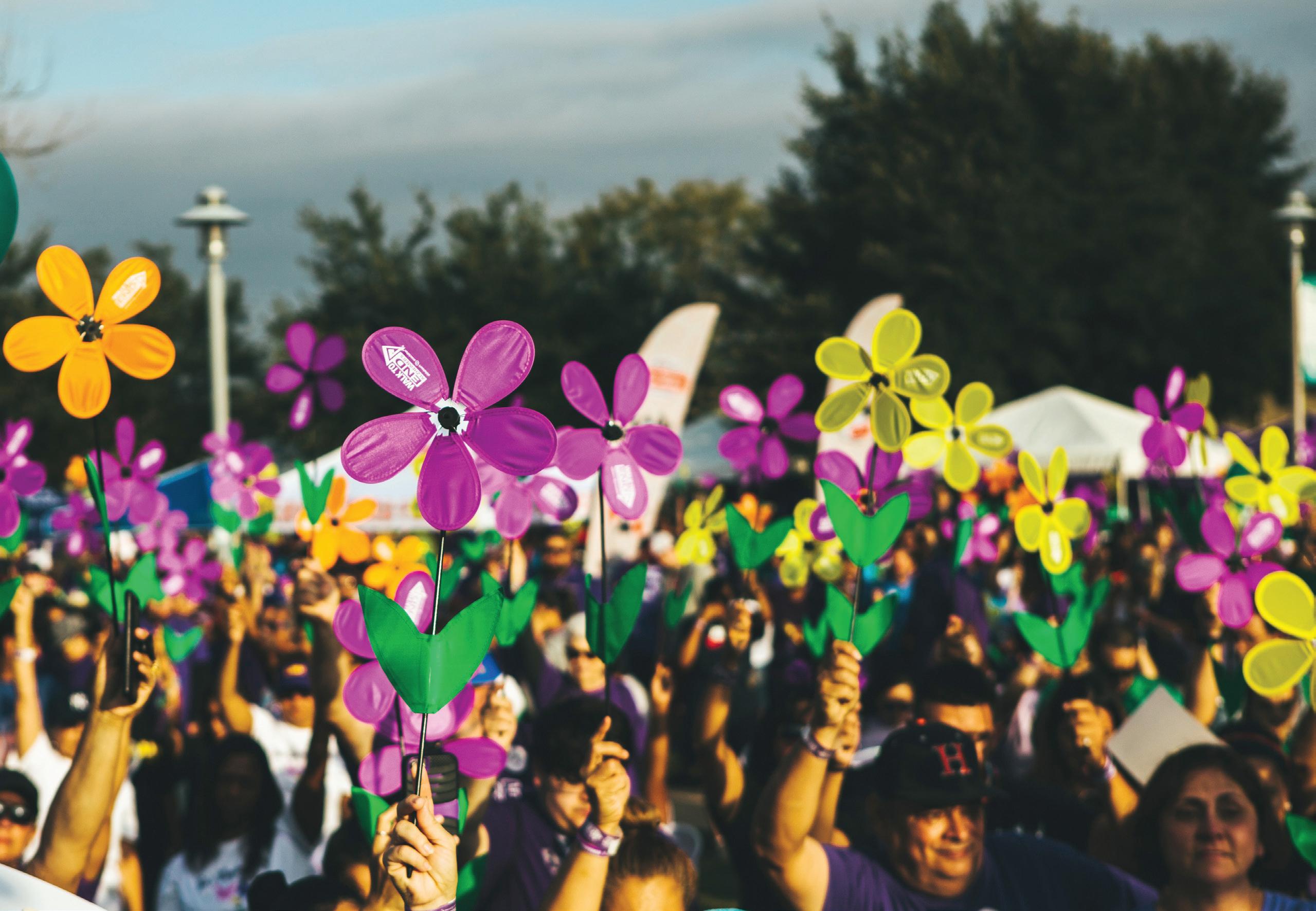

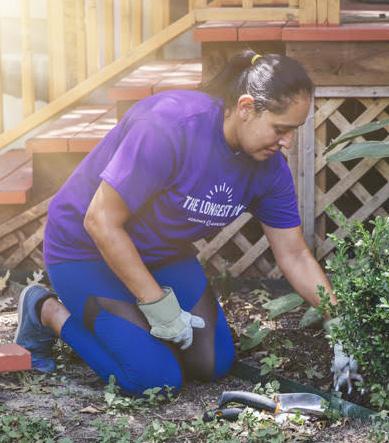
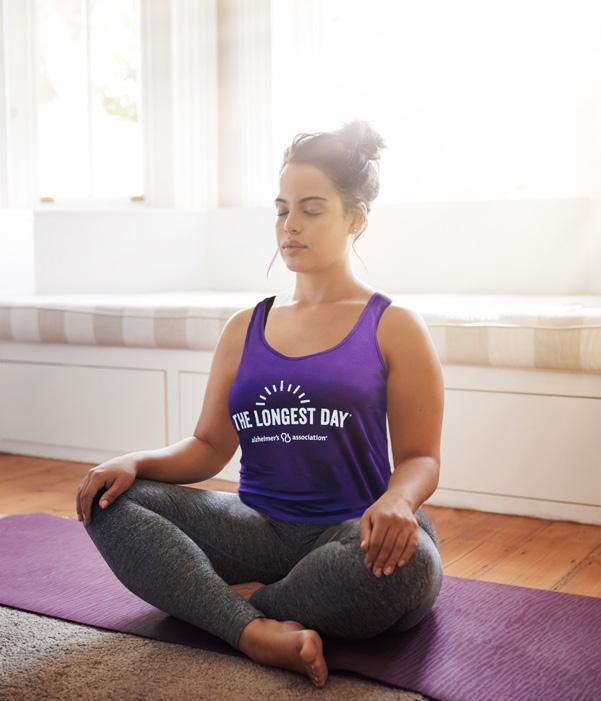
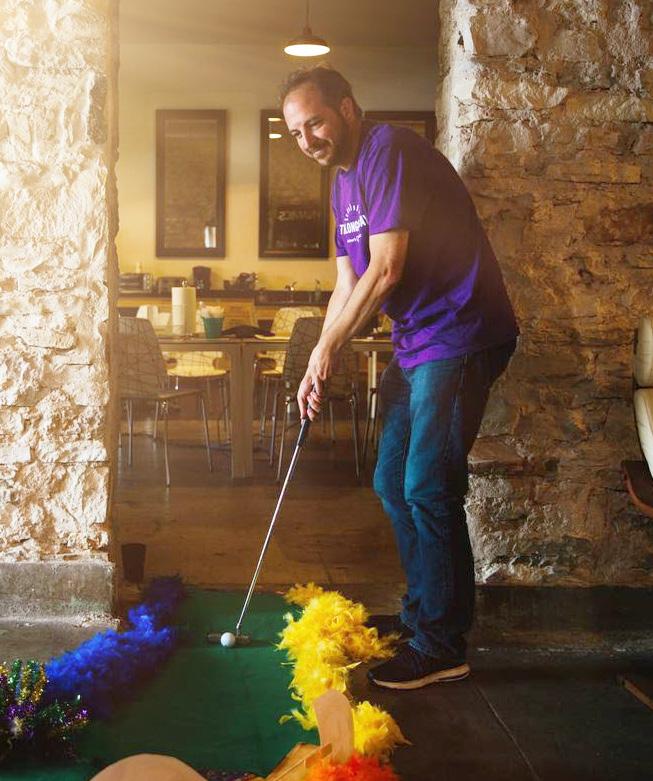
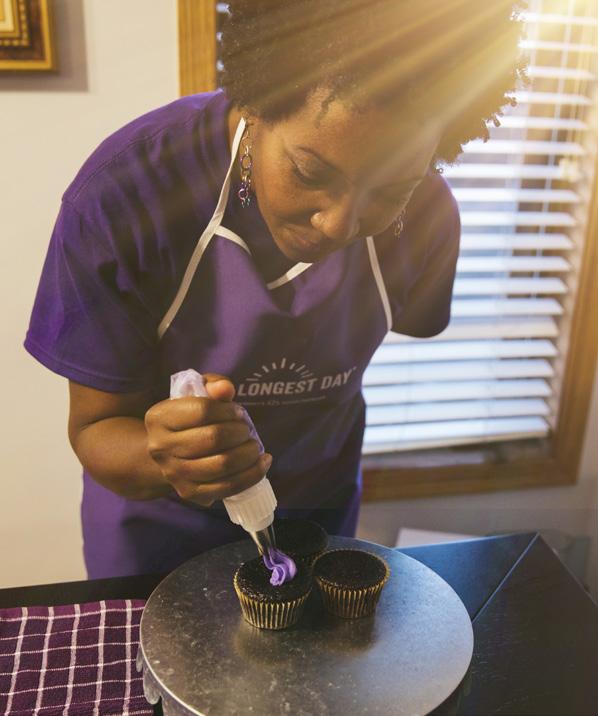
On June 21, stand up to the darkness of Alzheimer’s. Together, the strength of our light will outshine the darkness of Alzheimer’s.
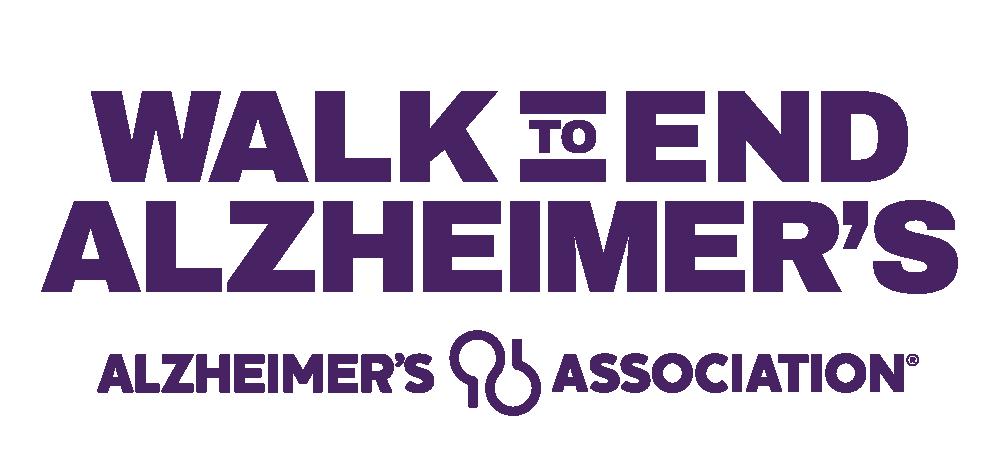
START NOW. SELECT YOUR ACTIVITY AT ALZ.ORG/THELONGESTDAY.
In-Person Educational Programs April to June 2023
10 Warning Signs of Alzheimer’s Disease
3 p.m. Tuesday, April 4
Adriance Library, 93 Market St., Poughkeepsie
1 p.m. Saturday, April 15
Kent Public Library, 17 Sybils Crossing, Kent Lakes
To register, call the library 845.225.8585 or visit the library calendar.
Noon Thursday, June 8
Interfaith Health Street Fair, 110 W. Fourth St., Mount Vernon. No registration needed.
Dementia Conversations
1-2 p.m. Friday, April 14
Somers Library, 82 Primrose St., Katonah. To register, visit the library’s calendar online.
Effective Communication Strategies

10:30-11 a.m. Wednesday, April 19 (hybrid)
Resource Center for Sustainable Living, 727 Ulster Ave., Kingston. To register, call 800.272.3900.
Healthy Living for Your Brain and Body
9:45 a.m. Saturday, April 8
Oneness Rehoboth Church, 154 Franklin Ave., Mount Vernon. To register, call 800.272.3900.
2 p.m. Monday, April 24 (hybrid)
Larchmont Public Library 121 Larchmont Ave, Larchmont. To register, call 800.272.3900.
Noon to 1 p.m. Thursday, April 27
Bet Torah, 60 Smith Ave., Mount Kisco. Lunch will be served. To register, call 800.272.3900.
1-2 p.m. Thursday, May 18
Alice Desmond Center for Community
Enrichment, 6 Albany Post Road, Newburgh. To register, call 800.272.3900.
2 p.m. Saturday, May 13
Mount Pleasant Public Library, 350 Bedford Road, Pleasantville. To register, call 800.272.3900.
Healthy Living for Your Brain and Body
Noon, Wednesday, May 24
SUNY Orange Gilman Center, 14 E. Conklin Ave., Middletown. To register, at 845.341.4870 or click here
6:30 p.m., Tuesday, June 6
Kingston Library, 55 Franklin St., Kingston. To register, call the library at 845.339.4260 or visit the library online.
1-2 p.m., Friday, June 9
Somers Library, 82 Primrose St., Katonah. To register, visit the library’s website here
1 p.m., Saturday, June 10
Kent Public Library, 17 Sybils Crossing, Kent Lakes. To register, call the library at 845.225.8585 or visit the library’s online calendar.
11 a.m. to noon Tuesday, June 13
The Nyack Library, 59 S. Broadway, Nyack. To register, call 800.272.3900.
11 a.m. to noon Saturday, June 24. Pilgrim Baptist Church, 84 N. Franklin St., Nyack. To register, call 800.272.3900. Free cognitive screenings to offered afterwards by the Nathan Kline Institute.
Managing Money: A Caregiver’s Guide to Finances
1-2 p.m. Wednesday, May 12
Somers Library, 82 Primrose St., Katonah. To register, visit the library’s online calendar.
2 p.m. Wednesday, May 12 (hybrid)
Larchmont Public Library, 121 Larchmont Ave., Larchmont. To register, visit the library’s online calendar
2 p.m. Monday, June 12 (hybrid)
Larchmont Public Library, 121 Larchmont Ave., Larchmont. To register, visit the library calendar
These programs are supported in part by a grant from the New York State Department of Health.
In-Person & Virtual Educational Programs April to June 2023


Research Presentation
2 p.m. Tuesday, June 6 (hybrid)
Learn about the latest in Alzheimer’s research from Research Champion Meg Boyce. Cornell Cooperative Extension Sullivan County, 64 Ferndale Loomis Road, Liberty. To register, call 800.272.3900.

Virtual Understanding Alzheimer’s and Dementia with Social Security Presentation
11 a.m. to 12:30 p.m. Thursday, May 11
Join us for a free virtual program, Understanding Alzheimer’s and Dementia, followed by an overview of Social Security Disability Benefits featuring Ravi Gopaul, Public Affairs Specialist from the Social Security Administration. Presented by all seven N.Y. State Alzheimer’s Association chapters. Click here to register online, or call the Alzheimer’s Association at 800.272.3900.

Understanding Alzheimer’s and Dementia
10:30-11:30 a.m. Thursday, April 13
Nanuet Public Library, 149 Church St., Nanuet. To register, contact Shannah Johnson at sjohnson@headstartofrockland.org
Noon Thursday, April 27
SUNY Orange, Gilman Center, 14 E. Conkling Ave., Middletown. To register, call 845.341.4870 or click here
1 p.m. Saturday, May 6
Kent Public Library, 17 Sybils Crossing, Kent Lakes. To register, call the library at 845.225.8585 or visit the library’s calendar.
2 p.m. Monday, May 15
Larchmont Library, 121 Larchmont Ave., Larchmont. Register on library’s website
5 p.m. Thursday, May 18
Ulster County BOCES, 104 Center St., Ellenville. To register, call 800.272.3900.
These programs are supported in part by a grant from the New York State Department of Health.
Unless otherwise noted, register for these programs by calling 800.272.3900 or visit alz.org/crf and search for them by zip code.
Alzheimer’s Research Forum: Latest Science Developments


9-11:30 a.m. Wednesday, May 10
Abigail Kirsch at Tappan Hill Mansion
81 Highland Ave., Tarrytown
Director of Scientific Engagement

Alzheimer’s Association
Do you have a loved one with Alzheimer’s or another dementia?
Learn about the latest in dementia research from a panel of experts at this free event. Then get your questions answered at a Q&A session. Scan the QR code, call 800.272.3900 or click here to register for the event.

Limited respite care is available; call 800.272.3900 by April 10 for details or to apply for respite.
Min-Jeong Kim, M.D., Ph.D. Assistant Professor of Psychiatry and Behavioral Health at Stony Brook University School of Medicine


A. Zarina Kraal Postdoctoral Research Scientist, Taub Institute for Research on Alzheimer's Disease and the Aging
Brain. Gertrude H. Sergievsky Center
Department of Neurology Columbia University Irving Medical Center
This program is supported in part by a grant from the New York State Department of
Health.
Featuring Percy Griffin
Recipient of Margaret M. Cahn Research Award
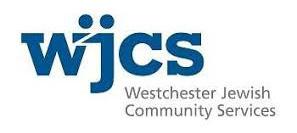

VIRTUAL LATE-STAGE DEMENTIA CAREGIVER SUPPORT GROUP Presented by the Alzheimer’s Association Hudson Valley Chapter in partnership with Westchester Jewish Community Services This program is presented in part by a grant from the New York State Department of Health. 10:30-11:45 a.m. on Mondays: March 13 & 27 April 10 & 24 May 8 & 22 June 5 Facilitated by Sarah Lieberman, LMSW, and Heidi Weiss, LMSW, MHA Topics to be covered include: • Ambiguous loss • Anticipatory grief • Important conversations • Caregiver self-care • What matters most in the end Pre-screening is required. To register, call the Alzheimer’s Association 24/7 Helpline at 800.272.3900.
BEREAVEMENT SUPPORT FOR FORMER DEMENTIA CAREGIVERS
Presented by the Alzheimer’s Association Hudson Valley Chapter in partnership with Rockland Jewish Family Services

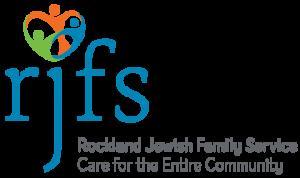
The group will be held from 2-3 p.m. on Mondays: April 10, 17 and 24; May 1, 8, 15, 22. It will be facilitated by Carol King, LCSW & Debra Kagan-Birkeland, LMSW
Prescreening is required to participate. Call the Alzheimer’s Association at 800.272.3900 to schedule a prescreening appoinment or for more information.

Session 1: April 10
Introductions and ground rules •“The Long Goodbye” • Anticipatory grief and ambiguous loss.
Session 2: April 17
Symptoms of normal grieving: behaviors • Thoughts, feelings, physical responses.
Session 3: April 24
Presentations • The life of my loved one • The task model of grieving
Session 4: May 1
Collateral losses • Reaction of friends and family • Mindfulness and meditation to deal with emotions and triggers.
Session 5: May 8
The three-stage model of grief • Defining self
Session 6: May 15
Creating a new normal • Life after living the role of caregiver.
Session 7: May 22
The legacy of my loved one • Checking in and final thoughts
This program is presented in part by a grant from the New York State Department of Health.
MAKE A DIFFERENCE VOLUNTEER WITH THE ALZHEIMER’S ASSOCIATION

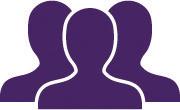



Millions of Americans are impacted by Alzheimer’s disease, and you can do something to help by becoming an Alzheimer’s Association volunteer. Our ability to reach and support those affected depends on people like you who are dedicated to the fight against this disease. As an Association volunteer, you can use your unique talents to make a meaningful impact in your community while connecting with others who share your passion. Find the role that’s the best fit for you.
Are you interested in:
Connecting with a variety of people in your area?
Teaching caregivers about Alzheimer’s?

Organizing social activities for people with Alzheimer’s?
Helping community members find programs and services?

Creating a safe environment where people can share feelings and experiences?
Advocating for people affected by Alzheimer’s?

Inviting others to join the cause?
Raising funds to advance the fight to end Alzheimer’s?



Click here to view a volunteer video. Getting started is easy! Sign up at alz.org/volunteer Questions? Call the Alzheimer’s Association at 800.272.3900.
For the general public
10 Signs of Alzheimer’s
Early diagnosis gives people with Alzheimer’s disease a chance to make key decisions about treatment, care and planning and the power to make choices about their own health and future. This program increases awareness of the benefits of early Alzheimer’s detection, and offers information about memory loss and normal aging, Alzheimer’s disease and other forms of dementia. Also learn about the risk factors,10 warning signs, the diagnostic process and resources to help.
Dementia Conversations
This program offers helpful tips to assist families with difficult conversations related to dementia, including going to the doctor, deciding when to stop driving and making legal and financial plans. It is primarily for those with a family member or close friend starting to experience Alzheimer’s or another dementia.

Healthy Living for Your Brain and Body: Tips from the Latest Research
At any age, there are lifestyle habits we can adopt to help maintain or even potentially improve our health. These may also help to keep our brains healthy as we age and possibly delay the onset of cognitive decline. This workshop covers cognitive activity, exercise, diet/nutrition and social engagement. Drawing on the latest research, this program explores steps to take to improve or maintain overall health in each area.
Introduction to Alzheimer’s
This program touches on a range of topics including the impact of Alzheimer’s disease and other forms of dementia, as well as risk factors, warning signs, resources and how you can join the fight against the disease.
Program listings at alz.org/hudsonvalley or alz.org/crf
If you or someone you know is facing Alzheimer’s disease, dementia or another chronic illness, it’s never too early to put financial plans in place. This program offers tips for managing someone else’s finances, guidance on how to prepare for future care costs and the benefits of early planning.
Understanding Alzheimer’s & Dementia
Alzheimer’s is not normal aging; it’s a brain disease that causes problems with memory, thinking and behavior. Learn about the impact of Alzheimer’s, the difference between Alzheimer’s and dementia, Alzheimer’s disease stages and risk factors, current research, treatments available to address some symptoms and Alzheimer’s Association resources.
These programs are supported in part by a grant from the New York State Department of Health. Educational programs available Call 800.272.3900 or visit alz.org/crf for more information.
Managing Money: A Caregiver’s Guide to Finances
Effective Communication Strategies
Individuals living with dementia often experience changes in behavior that can be confusing to their caregivers. For caregivers, learning to decode messages through attitude, tone of voice, facial expressions and body language can help both parties connect in meaningful ways. This program helps explain the communication changes that take place in a person with dementia and identify strategies to connect and communicate at each stage of the disease.
Find
Understanding and Responding to Dementia-Related Behavior
During the middle stage of dementia, the person with the disease often starts to exhibit new behaviors that can be confusing for a caregiver. These behaviors are actually a form of communication, and are essential to understanding the needs of the person with dementia. This program helps attendees identify common triggers for common behaviors associated with dementia and learn strategies for addressing these behaviors.
Programs for caregivers For people with early-stage Alzheimer’s
These programs are each a three-part series for people in the early stage of Alzheimer’s disease or a related dementia. The diagnosis of Alzheimer’s disease is life-changing and leads to many questions. What will this mean for me and my family? How do I plan for the future? Where can I get the help I need? We will discuss what you need to know, what you need to plan and what you can
Living with Alzheimer’s for Caregivers
When someone is diagnosed with Alzheimer’s, friends and family have many questions. What does the diagnosis mean? What kinds of plans need to be made? What resources are available to help? As the disease progresses, new questions reflect growing needs for skills, programs and services.
Living with Alzheimer’s for Caregivers is a series of educational programs that provide answers to the questions that arise in the various stages of the disease. Topics covered will include developing a care team, legal and financial planning, coping strategies, care and treatment options, communicating and connecting and maximizing independence.
The programs are two or three sessions long.
• Living with Alzheimer’s: For Caregivers: Early-Stage (three sessions)
• Living with Alzheimer’s: For Caregivers: Middle-Stage (three sessions)
• Living with Alzheimer’s: For Caregivers: Late-Stage (two sessions)
do as you navigate this chapter of your life. The following programs are two to three sessions. Session lengths can be tailored to fit your needs.
• Living with Alzheimer’s: For people with Alzheimer’s
• Living with Alzheimer’s: For younger-onset Alzheimer’s
These programs are supported in part by a grant from the New York State Department of Health. Call 800.272.3900 for more information.
programs at alz.org/crf
Social Programs
The Alzheimer’s Association offers a variety of social programs to help people with dementia and their loved ones have fun, meaningful experiences and meet new friends.

AlzWell Social Club: Online gatherings featuring creative activities for people with dementia and their caregivers: Noon to 3:30 p.m. Saturdays, April 1, 15 & 29; May 6, 20 & 27; June 10 & 17
Virtual Memory Cafes: 1-2 p.m. Thursday, April 13: Music and Meditation with Carole Brill; 1-2 p.m. Thursday, May 11: Music with Richard Frank.

In-person Memory Cafes: Noon to 2 p.m. Thursday, April 20, in Elmsford; Noon to 2 p.m. Thursday, June 8, in Elmsford.
Forest Bathing Walk: 10:15 a.m. to noon, Friday, May 19. Vassar College, Poughkeepsie. Space is limited ; preregistration is required. Call 800.272.3900 or email Tara DeLuca at tedeluca@alz.org or Eileen Hendriksen at eihendriksen@alz.org. Tune into your senses and reconnect with nature.
Something for Alz: Free programs for people with dementia and their family caregivers featuring a variety of interactive activities.
Something for Alz: Bethel Woods with Candace Rivela: In-person at Bethel Woods Center for the Arts, 200 Hurd Road, Bethel, April 5 and 12.
Something for Alz: Musical Moments with Jeffrey Friedberg: An interactive virtual music program: 10:3011:30 a.m. Wednesdays May 3, 10, 17, 24, 31 and June 7

Sunday Socials: In-person gatherings featuring musical entertainment and refreshments for people with dementia and their caregivers: 12:30-3 p.m. April 23 with Georgianne Millard; May 21 with Peter Randazzo; June 11 with Mike Torres
To learn more or register, visit alz.org/hudsonvalley or call the Alzheimer’s Association at 800.272.3900.
These programs are supported in part by a grant from the New York State Department of Health.




Alzheimer’s Association Hudson Valley Chapter alzassociationhv Alzheimer’s Association Hudson Valley Chapter 2649 South Road, Suite 101 Poughkeepsie, NY 12601 24/7 Helpline: 800.272.3900 • alz.org/hudsonvalley Trialmatch: alz.org/trialmatch Caregiver Center: alz.org/care Community Resource Finder: alz.org/crf Navigator: alzheimersnavigator.org Message Board: alzconnected.org Walk to End Alzheimer’s: alz.org/walk • The Longest Day: alz.org/tld Serving Dutchess, Orange, Putnam, Rockland, Sullivan, Ulster and Westchester counties in New York. Poughkeepsie Office 2649 South Road, Suite 101 Poughkeepsie, NY 12601 Purchase Office 2900 Westchester Ave., Suite 306 Purchase, NY 10577 @ALZHudsonvalley @EndAlz_HV
































































